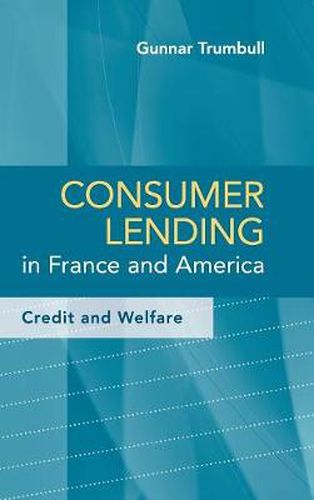Readings Newsletter
Become a Readings Member to make your shopping experience even easier.
Sign in or sign up for free!
You’re not far away from qualifying for FREE standard shipping within Australia
You’ve qualified for FREE standard shipping within Australia
The cart is loading…






Why did America embrace consumer credit over the course of the twentieth century, when most other countries did not? How did American policy makers by the late twentieth century come to believe that more credit would make even poor families better off? This book traces the historical emergence of modern consumer lending in America and France. If Americans were profligate in their borrowing, the French were correspondingly frugal. Comparison of the two countries reveals that America’s love affair with credit was not primarily the consequence of its culture of consumption, as many writers have observed, nor directly a consequences of its less generous welfare state. It emerged instead from evolving coalitions between fledgling consumer lenders seeking to make their business socially acceptable and a range of non-governmental groups working to promote public welfare, labor, and minority rights. In France, where a similar coalition did not emerge, consumer credit continued to be perceived as economically regressive and socially risky.
$9.00 standard shipping within Australia
FREE standard shipping within Australia for orders over $100.00
Express & International shipping calculated at checkout
Why did America embrace consumer credit over the course of the twentieth century, when most other countries did not? How did American policy makers by the late twentieth century come to believe that more credit would make even poor families better off? This book traces the historical emergence of modern consumer lending in America and France. If Americans were profligate in their borrowing, the French were correspondingly frugal. Comparison of the two countries reveals that America’s love affair with credit was not primarily the consequence of its culture of consumption, as many writers have observed, nor directly a consequences of its less generous welfare state. It emerged instead from evolving coalitions between fledgling consumer lenders seeking to make their business socially acceptable and a range of non-governmental groups working to promote public welfare, labor, and minority rights. In France, where a similar coalition did not emerge, consumer credit continued to be perceived as economically regressive and socially risky.